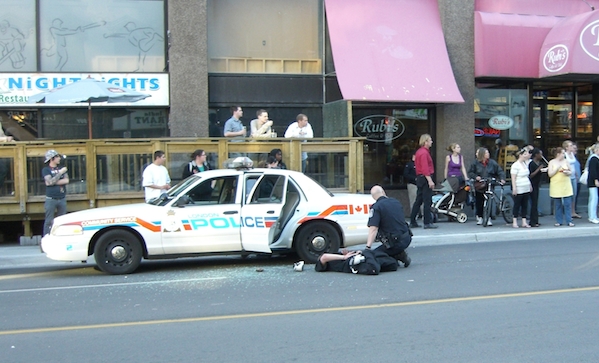Stop me if you’ve heard this one: police are accused of overreacting to a threat, but police say a response was justified, so we’re going to review footage of the event. We have some bad news, though: if that video doesn’t tell the whole story, it just reinforces our prejudices.
A study published in the Journal of Experimental Psychology has found that, “The more intently people look at evidence presented, the less they may see it in similar, objective ways.” Researchers had 152 people fill out a questionnaire that tested how much they trusted police officers. Then, they watched a forty-five second video which depicted an altercation between a police officer and a civilian in which wrongdoing is ambiguous. While this happened, researchers unobtrusively tracked the eye movement of their subjects. Then, the subjects had to say how incriminating they felt the officer’s actions were.
Researchers found that some people were able to rise above their biases, but some weren’t. Those who weren’t able to rise above their biases kept their eyes on the officer the whole time, and they strongly advocated either harsh or no punishment. By contrast, people who let their eyes wander around the screen were able to ignore their bias.
According to researchers, “One might think that the more closely you look at videotape, the more likely you are to view its contents objectively. But that is not the case. In fact, the more you look, the more you find evidence that confirms your assumptions about a social group, in this case police.”
___
Photo courtesy of Tobin B.


